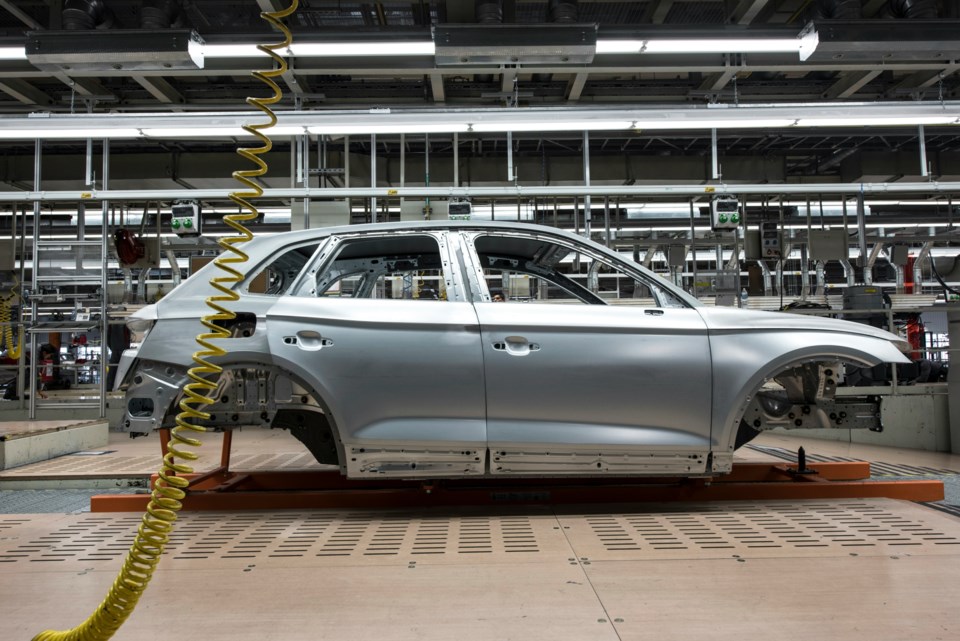British Columbians interested in purchasing a vehicle might want to reach out to a dealership soon to lock in pricing as uncertainty climbs over tariffs.
That’s according to the CEO of the New Car Dealers Association of B.C.
“This has been a big cloud of uncertainty,” said Blair Qualey, speaking to BIV the day after the U.S. administration’s Wednesday announcement that previously announced 25 per cent tariffs on Canadian automobile imports and parts would be going into effect.
Prime Minister Mark Carney announced Thursday that Canada would match such U.S. tariffs, with the exception of auto parts.
“It's been sitting over all Canadians for some time,” Qualey said.
“I suppose we could say it could have been worse yesterday than what we saw.”
The precise implications of tariffs on B.C.’s auto industry are still up in the air, he said. This includes pricing for manufacturers, as well as cost and inventory effects for consumers.
But it seems trade tensions have already injected some uncertainty into consumers.
A March 31 province-wide survey by Autozen Technology Ltd., a Vancouver-based online vehicle marketplace, showed that 61 per cent of British Columbians are concerned about finding reasonable used car options amid tariffs.
The 800-participant survey also showed that 73 per cent of respondents are concerned about finding reasonable new car options. A total of 30 per cent of respondents have also changed their decision on a major purchase like a car or house due to political tensions.
“Each brand is going to make its own decisions around what they absorb for what period of time. If they absorb anything,” said Qualey, adding some dealers will start having these conversations with manufacturers this week.
He said it’s still very early, but he believes costs could likely increase and availability may be impacted for certain brands.
“I'm not expecting anything different from our dealer members now in this challenging situation … their first focus is looking after their customers,” said Qualey. “I think we need to give it a few weeks to see how this is all going to settle out.”
Autozen CEO Sean Mactavish said he expects tariffs will push auto prices up, while supply goes down. This is reflected in his company’s survey, which showed 82 per cent of respondents believe the price of used cars will increase over the next 12 months.
“We are expecting to see a similar echo to what we saw in COVID, of reduced availability and in higher prices,” he said. “[But] likely not to the same order of magnitude.”
Mactavish noted Ottawa’s decision of not levying auto parts from the U.S., which will prevent the additive effect of tariffs hitting auto parts multiple times when they crisscross over the border for manufacturing purposes.
“The other announcement that's of real interest is the Stellantis plant shutdown in Windsor … for the next two weeks,” he said. “If we continue to see that kind of activity, not only do you have higher prices as a result of tariffs, but you also see reduced supply.”
This shortage, mixed with tensions, could also open the door to substitution from vehicle companies in Europe or Asia, said Mactavish.
"Instead of buying a more expensive North American SUV, maybe they'll be switching to a German or an Asian produced one," he said.
He also pondered whether there could be a switch back from electric vehicles to gas vehicles as a result of higher prices.




